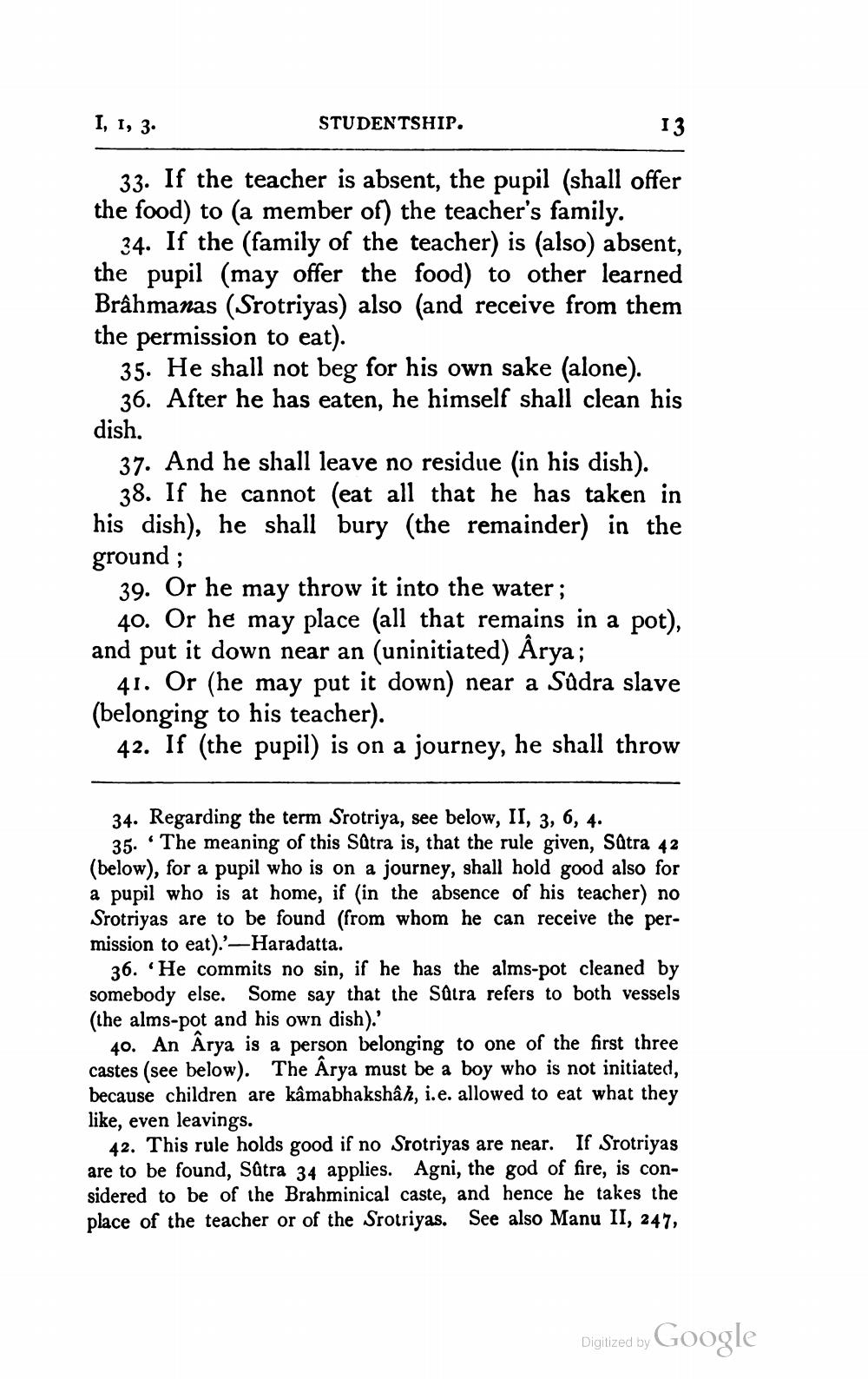________________
I, I, 3.
13
33. If the teacher is absent, the pupil (shall offer the food) to (a member of) the teacher's family.
34. If the (family of the teacher) is (also) absent, the pupil (may offer the food) to other learned Brahmanas (Srotriyas) also (and receive from them the permission to eat).
35. He shall not beg for his own sake (alone). 36. After he has eaten, he himself shall clean his dish.
STUDENTSHIP.
37. And he shall leave no residue (in his dish). 38. If he cannot (eat all that he has taken in his dish), he shall bury (the remainder) in the ground;
39. Or he may throw it into the water;
40. Or he may place (all that remains in a pot), and put it down near an (uninitiated) Ârya;
down) near a Sûdra slave
41. Or (he may put (belonging to his teacher).
42. If (the pupil) is on a journey, he shall throw
34. Regarding the term Srotriya, see below, II, 3, 6, 4.
35. The meaning of this Sutra is, that the rule given, Sutra 42 (below), for a pupil who is on a journey, shall hold good also for a pupil who is at home, if (in the absence of his teacher) no Srotriyas are to be found (from whom he can receive the permission to eat).'-Haradatta.
36. He commits no sin, if he has the alms-pot cleaned by somebody else. Some say that the Sutra refers to both vessels (the alms-pot and his own dish).'
40. An Arya is a person belonging to one of the first three castes (see below). The Arya must be a boy who is not initiated, because children are kâmabhakshâh, i.e. allowed to eat what they like, even leavings.
42. This rule holds good if no Srotriyas are near. If Srotriyas are to be found, Sûtra 34 applies. Agni, the god of fire, is considered to be of the Brahminical caste, and hence he takes the place of the teacher or of the Srotriyas. See also Manu II, 247,
Digitized by
Google




